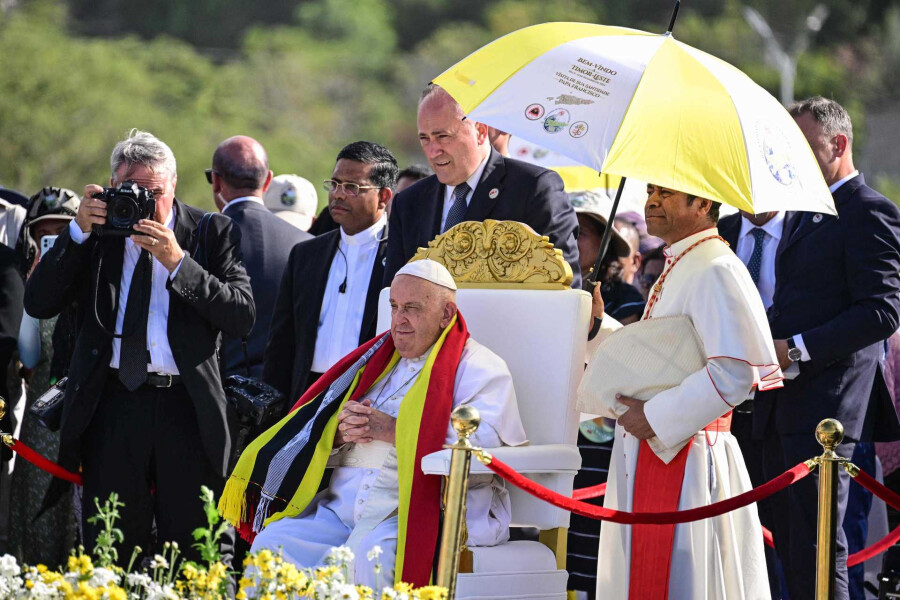Francisco held, in East Timor, a three-day visit to the country in a scope of a tour who is doing for the region and ends in Singapore.
“His Holiness’ visit happens at a crucial time for our collective future, not only in our country but also globally. He brings a message of peace, reconciliation, human fraternity, and hope, so necessary in an increasingly troubled world in which the coldness of the hearts has replaced dialogue and peace,” stated the head of state Timorese.
Jose Ramos-Horta was addressing the Timorian Presidency, where Pope Francis held the first official act of his visit, in a ceremony which was attended by the authorities, church members, civil society, and diplomatic body.
“That the message of His Holiness touch men’s hearts, especially those world and regional leaders, with great responsibilities for our safety,” said the also Nobel Peace award.
Jose Ramos-Horta lamented the victims of armed conflicts, namely in Ukraine, Palestine, Sudan, Yemen, Syria, Democratic Republic of Congo, Myanmar, and in the Korean peninsula, who are the one who suffers most about the “global disharmony”.
In the speech, the Thymorian President pointed out that Francis’s “historic” visit occurs in a “particularly significant” year for the Timos and East Timor.
“We’ve checked several important ephemeris marking the trajectory of East Timor,” he said, recalling that this year celebrated the 25 years of the referendum holding, which allowed the restoration of independence, and that for the week he marks the 25 years of approval of the Interfet by the UN Security Council.
Jose Ramos-Horta also recalled the 50 years of April 25, 1974, a “humanist revolution that franched the doors to peace and democracy in Portugal and in all Portuguese colonial territories,” and reminded that next 12 October mark 35 years on a Pope’s first visit to the country.
Pope John Paul II’s journey to East Timor on October 12, 1989 placed the cause of self-determination in the “global agenda,” he said.
*With Lusa



